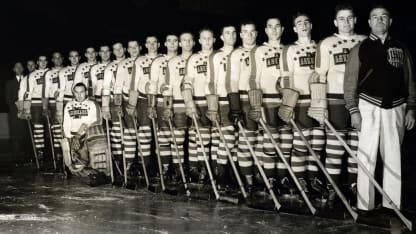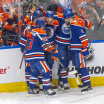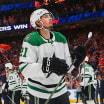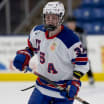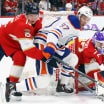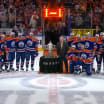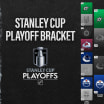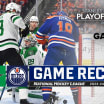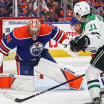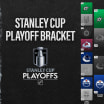Legendary hockey reporter Stan Fischler writes a weekly scrapbook for NHL.com. Fischler, known as "The Hockey Maven," shares his humor and insight with readers each Wednesday.
This week he zeroes in on one of the most colorful but oft-losing teams in NHL history, the New York Americans (also known as the Amerks). They enjoyed the 1937-38 season, which included a Stanley Cup Playoff series win and the longest game in Gotham's hockey history -- enough playing time for five regulation NHL games.
It was their last hurrah.
If ever there was a hard-luck franchise, it would have to be the New York Americans.
Originally owned by bootlegger "Big Bill" Dwyer, the Amerks' claims to fame included being the first NHL team in New York City as well as being the zany franchise that turned The Big Apple into a hockey hotbed.
The Americans wore flamboyant, star-spangled jerseys, matching in color their behavior both on and off the ice. They never won the Stanley Cup and -- in their 16-year existence -- never finished first. Yet, they did enjoy one Cinderella season in 1937-38 with the biggest Stanley Cup Playoff victory in franchise history.
Their rivalry with the New York Rangers -- they shared Madison Square Garden -- was epic. What's more it featured the Amerks' flamboyant former defenseman Mervyn "Red" Dutton, who controlled the team after his retirement following the 1935-36 season. Like the New York Giants and Brooklyn Dodgers in baseball, the rivalry ran along geographic lines.
"We had fans mostly from Brooklyn," Dutton explained, "while the Rangers had the hotsy-totsy ones from New York."
One of those avid Amerks boosters in 1937-38 was 15-year-old Ben Olan, who would grow up to run hockey coverage at The Associated Press for more than a decade. An Elmer Ferguson Award-winner, Olan once explained to me that to root for the Americans you had to love underdogs and dislike the "hotsy-totsy" Rangers.
"One thing made Amerks fans like me happy," Olan said. "All we wanted was to beat the Rangers in the playoffs. Beating them meant so much because they always had it over the Americans."
What made the rivalry so keen was the fact that the Madison Square Garden-owned Rangers had been artistically superior to the Americans from the very start. In 1928, while the Amerks were floundering near the bottom of the League, the Rangers won the Stanley Cup in only their second year in existence -- and did it again in 1933.
By that time, the Amerks had traded for Dutton, the tough son of a Canadian construction magnate. A World War I hero, Dutton had a red mane and the temper to go with it.
"He also earned a piece of the team," wrote Canadian historian Ty Di Lello, "when he bailed out owner Bill Dwyer for $20,000 worth of player salaries. And in 1935-36, Red became player-manager of the Americans. "
"That's when I fell in love with them," recalled Olan, who was 12 at the time. "Dutton gave us hope that better things were ahead -- and he made them happen."
It wasn't easy. For one thing, Dutton had to pay the Garden a stiff annual rental fee while the Rangers paid nothing. Plus, the Great Depression made it tough to draw cash-starved fans.
"We were always short of money," Dutton said. "Many was the day when I'd look up at the sky and pray it wouldn't rain so we'd have a good crowd and could pay the salaries. I wanted the club to be able to pay the bills on its own."

